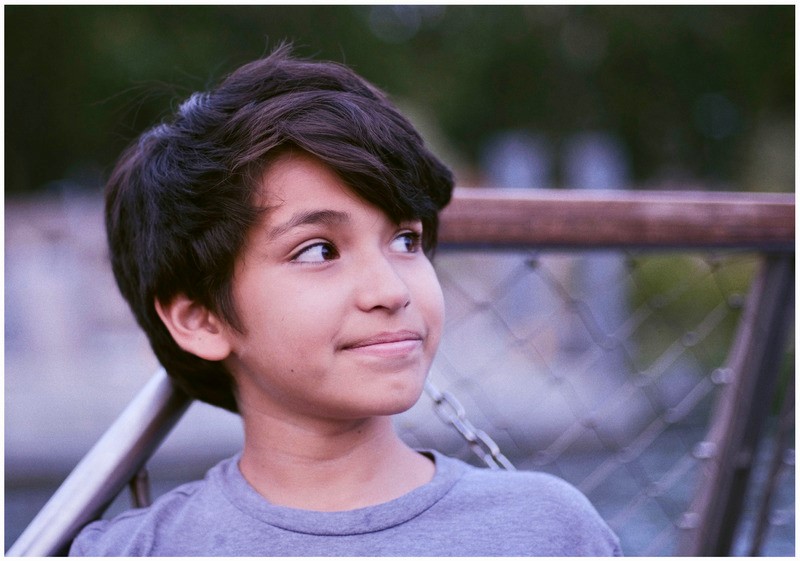Caring for a child with autism and ADHD can be overwhelming, but it also brings its own joys as you watch your child meet a milestone, take a positive step toward a goal or find wonderment in something simple or their special interest. If you focus on the strengths of your child with autism and ADHD, you can find balance to the challenges you face and emphasize your child’s positive qualities.
I know that sometimes I get caught up in the battles of each day and trying to help my son improve certain behaviors. Yet, if I step back and focus on what he’s doing right and his strengths, I always feel calmer and my thoughts turn more positive. He is such a great kid, and I’m sure your child is too. We are our children’s advocates, so we need to have a mindset that is more optimistic and positive.
Common strengths of children with autism and ADHD

Your child with autism and ADHD is unique and provides a fresh perspective to the world. They have so many positive qualities that are individual to them but also that they share with others who also are on the autism and ADHD journey. Here are some strengths they may share:
Strengths of autism:
- True wonderment when experiencing something fun or related to their special interest(s)
- Deep knowledge of their special interest/favorite topic
- Music and art skills
- Exceptional rote memory
- Ability to read early (known as hyperlexia)
- Focus on the rules and sequencing
- Attention to details
- Good with numbers (even if math isn’t their best subject in school)
- Capability for alternate problem solving
- Visual learner
- Loyalty and honesty
- Non-judgmental listener
- Direct communicator
- Punctual
- Logical thinker
Strengths of ADHD:
- High energy for experiences that are fun or related to their favorite topics
- Adventurer
- Innovative and imaginative thinker
- Ability to live within chaos and change
- Creativity
- Curiosity
- Intelligence
Ways to focus on your child’s strengths

We have a lot to celebrate with our kids, so follow these three ways to focus on the strengths of your child with autism and ADHD.
1. Identify your child’s strengths
Take some time to identify your child’s strengths. You can write them down in a journal or note them on an app such as Notes or Reminders on your phone so that you can refer back to them in moments when you need some calm or a reset. Also, just taking a few minutes a day to tick them off in your mind can help too.
2. Don’t compare your child to others
We all know that comparison can put us in a negative mindset, whether we are comparing ourselves to others’ seemingly perfect lives on social media; other friends’ or acquaintances’ children and how well behaved and successful they are; or coworkers who seem to get the best assignments and opportunities at work.
I had a friend who once said that if we all put our problems in a pile in the middle of the room and saw what other people were dealing with, we most likely would take our problems back in a heartbeat. Everyone has their own challenges in this life, and we need to remember that in the best highlight reel on their social media and the stories they share with others, there are challenges in the background that they are only sharing with those closest to them.
Therefore, don’t compare your ability as a parent or caregiver or your child’s or teen’s life with others. First, we are all unique, so it will never be an “apples to apples” comparison – we are always apples to oranges. Second, remember that we all have different backgrounds, cultures and ways of thinking, so let’s celebrate that diversity. Our children bring fresh perspectives to our lives because they think and see the world differently. Although that can be frustrating in certain moments, it really is a gift. That cannot be compared.
If you feel the need to compare, look at how your child or teen grows. How are they different today and a year or two ago? How have they built on their strengths? How has their behavior or social skills improved over a period of time?
3. Share your child’s strengths with others
Your support network of friends, family and providers love your child too, so share your child’s strengths with them. Then ask them what they think your child’s strengths are. You may be surprised to learn they see other strengths that you hadn’t thought about before.
Also, be sure to praise your child on a regular basis for their strengths. Compliment them when they do something good or have an innovate thought or solution to a problem they are dealing with. This will put you both in a more positive mindset.
The goal of focusing on your child’s strengths is not to overshadow their weaknesses and areas in which they need to improve. Instead, strengths are more valuable. They help shape a life that is full of hope and optimism. So focus on and celebrate your child’s strengths today.
How do you focus on your child’s strengths? Tell us more in the comments, so we can connect and support one another on this journey!







